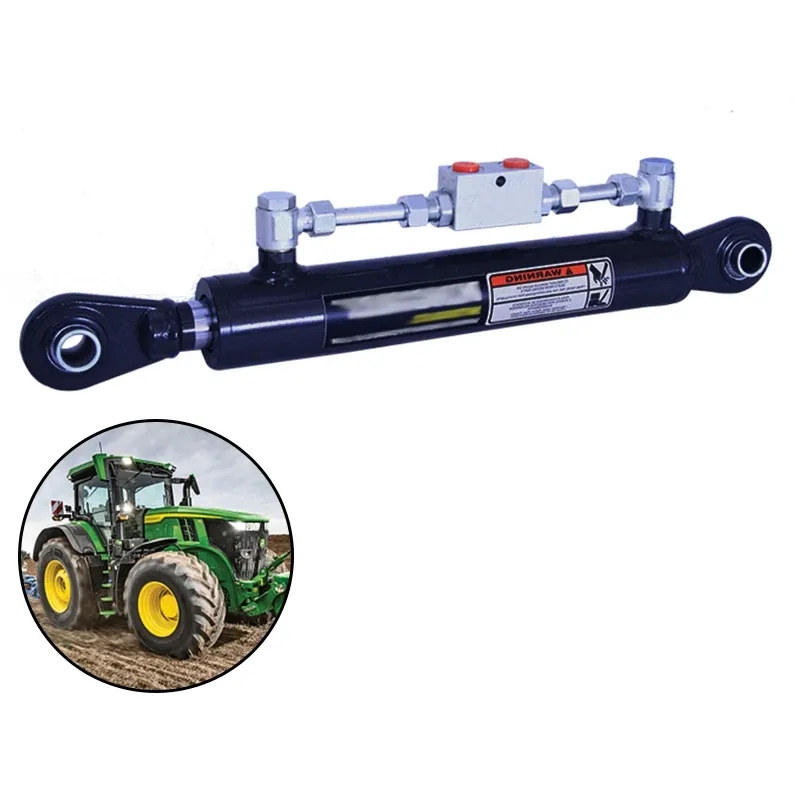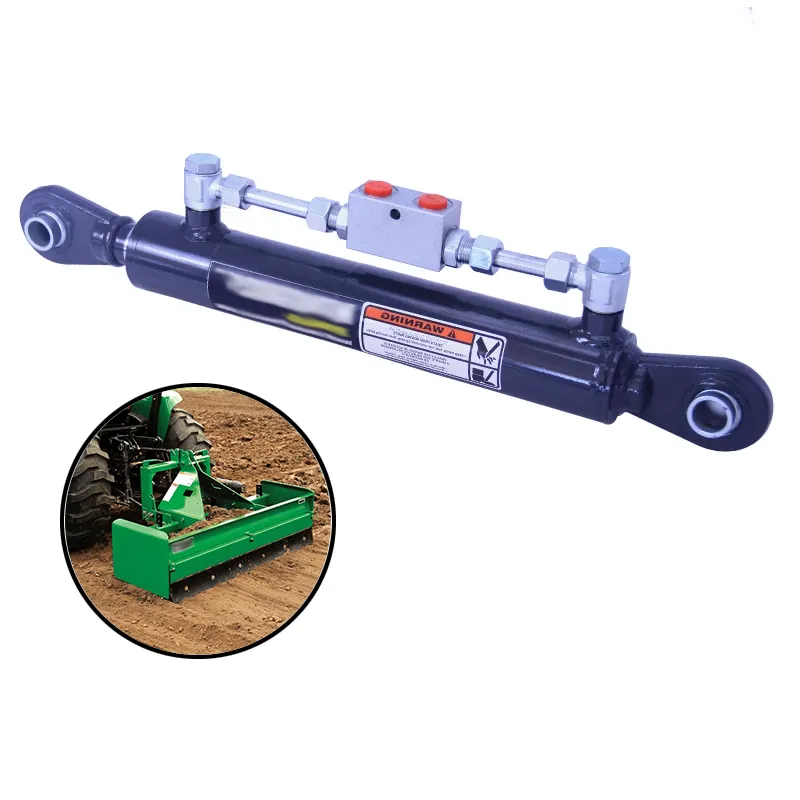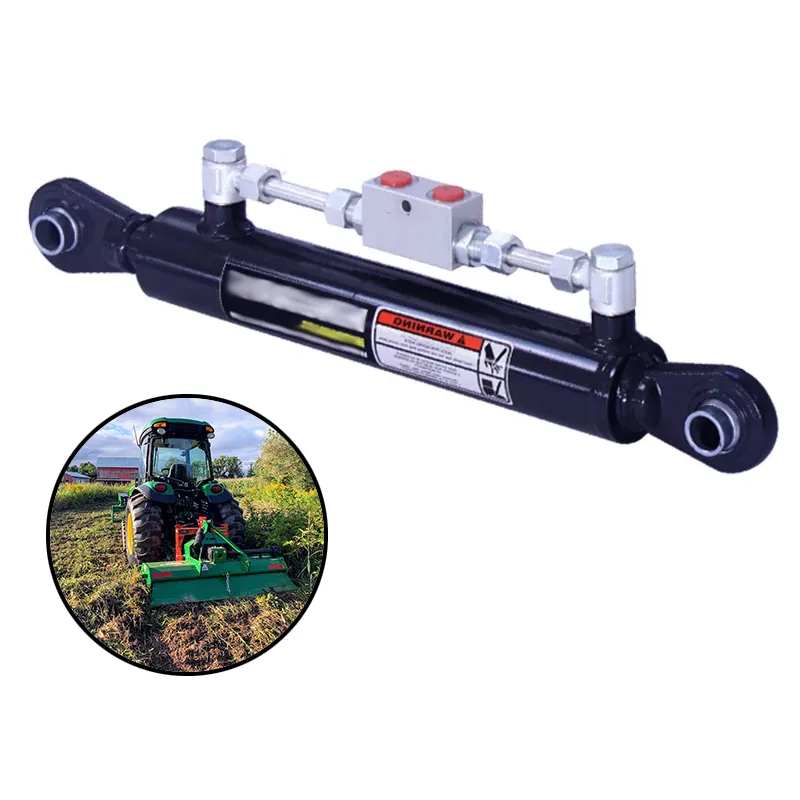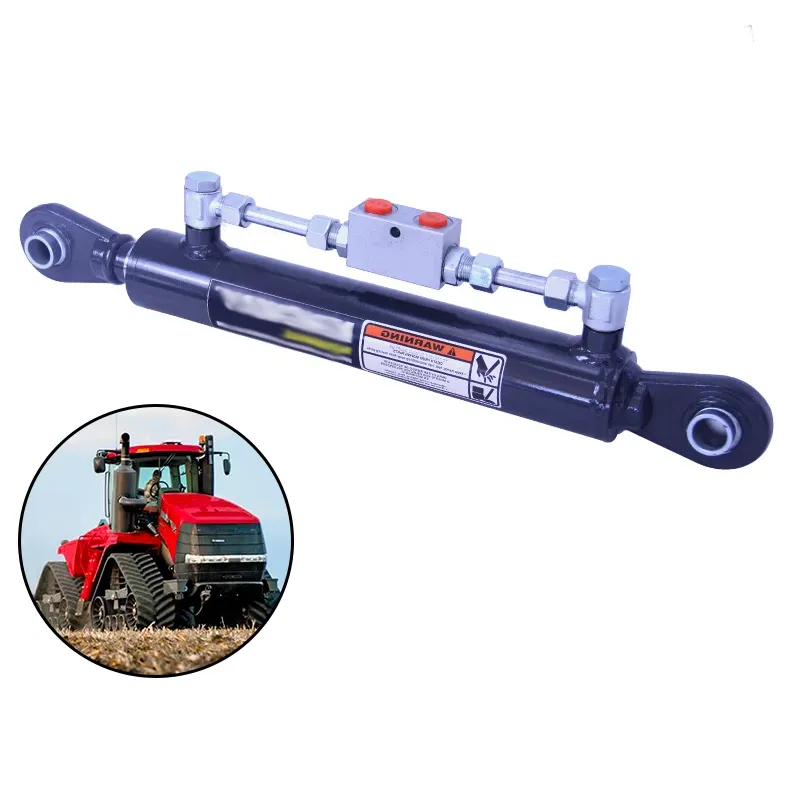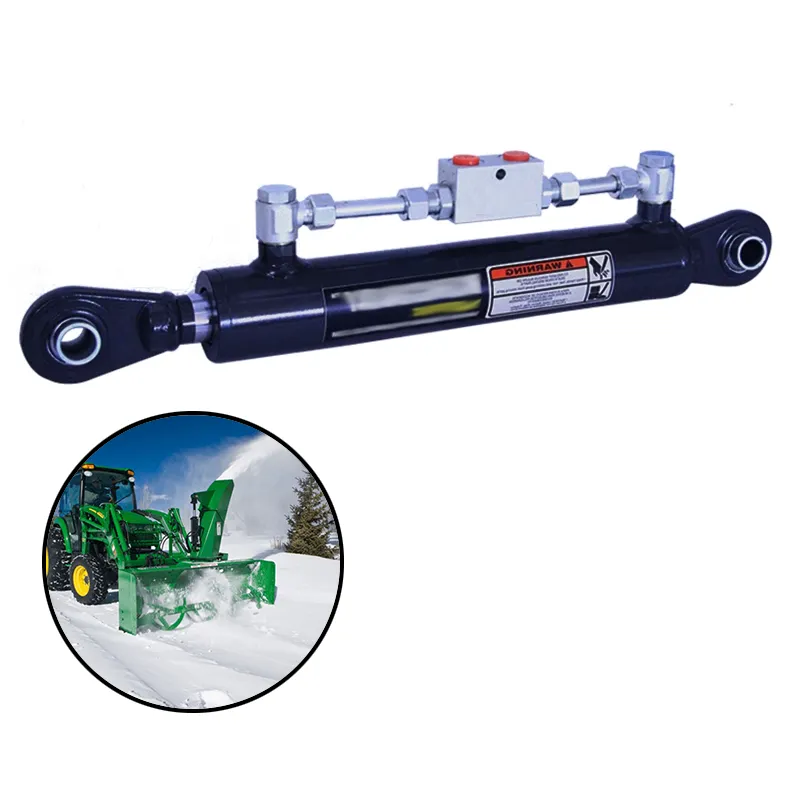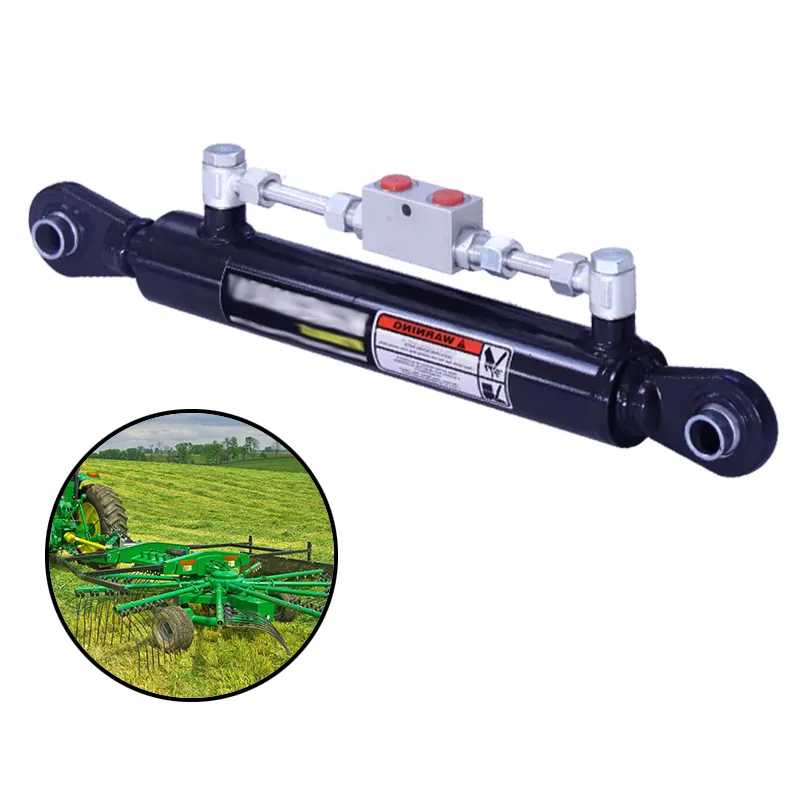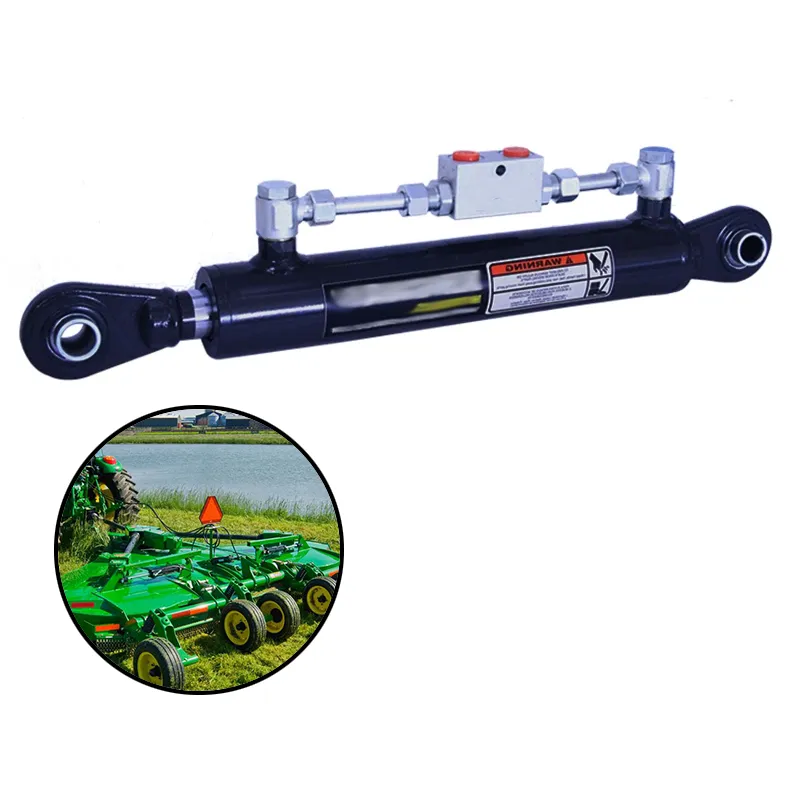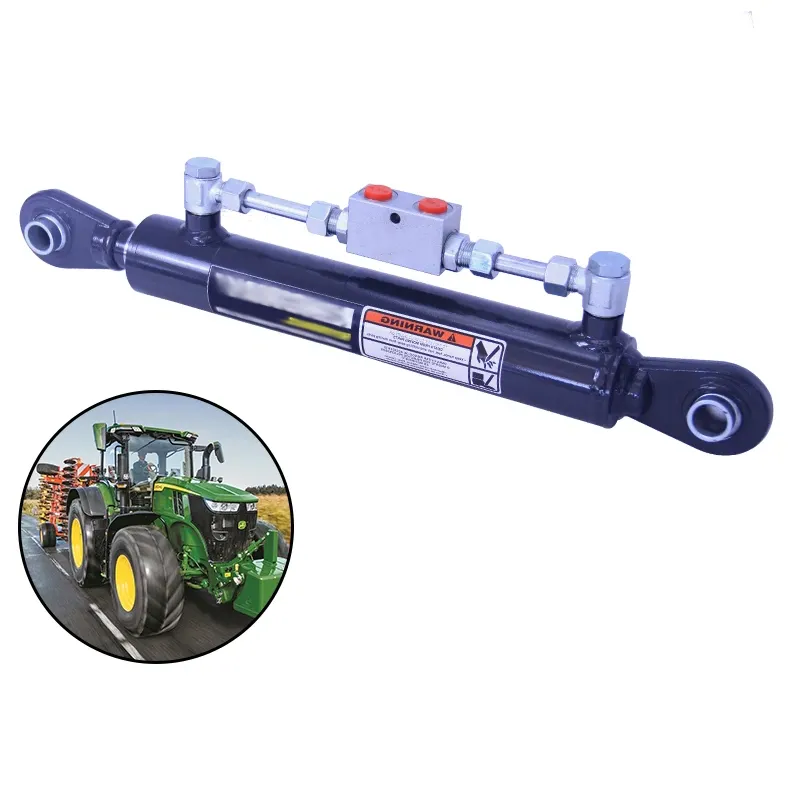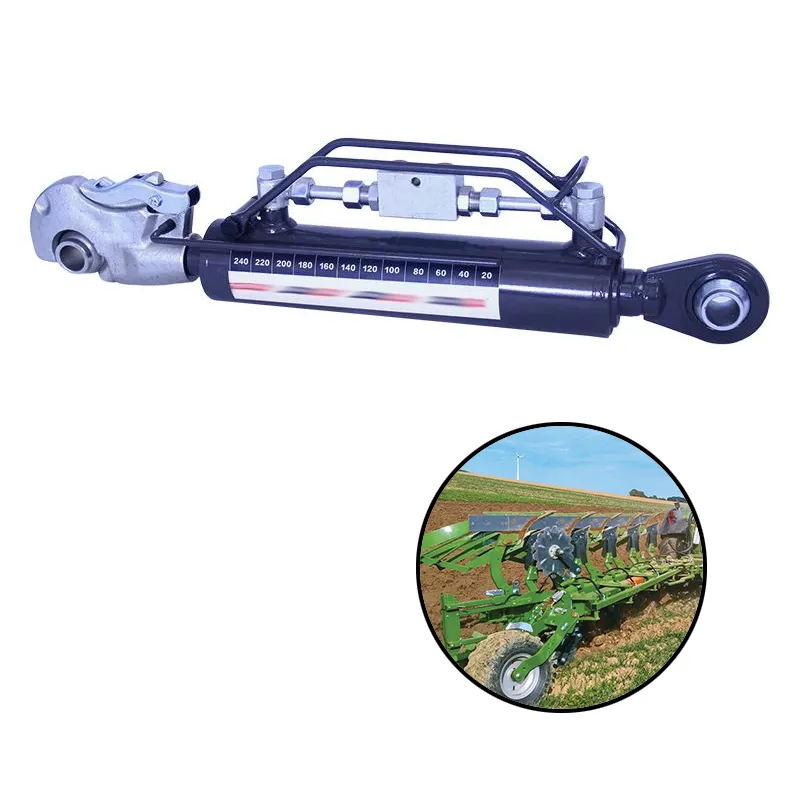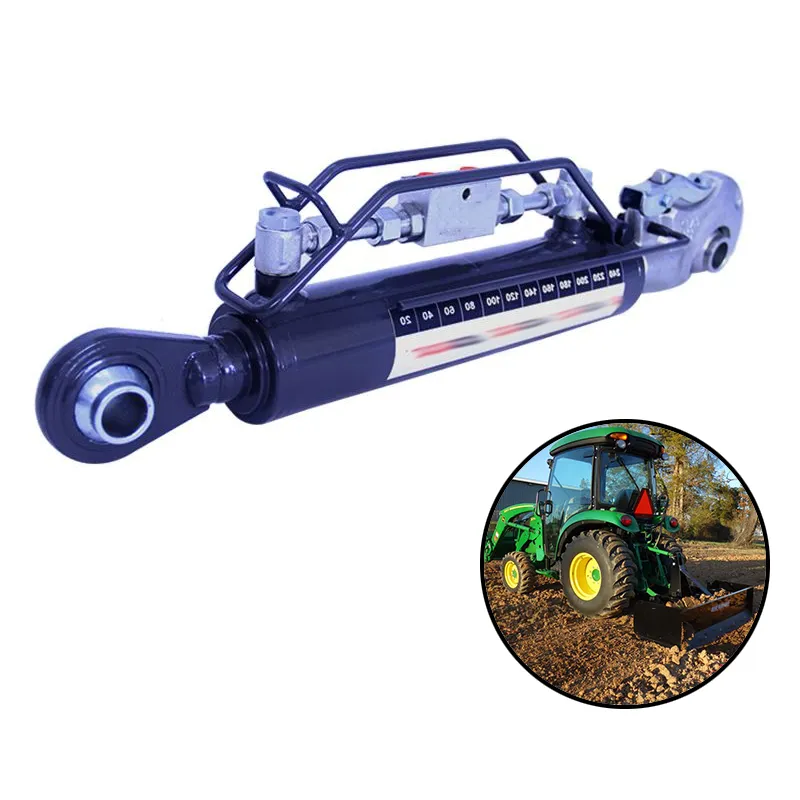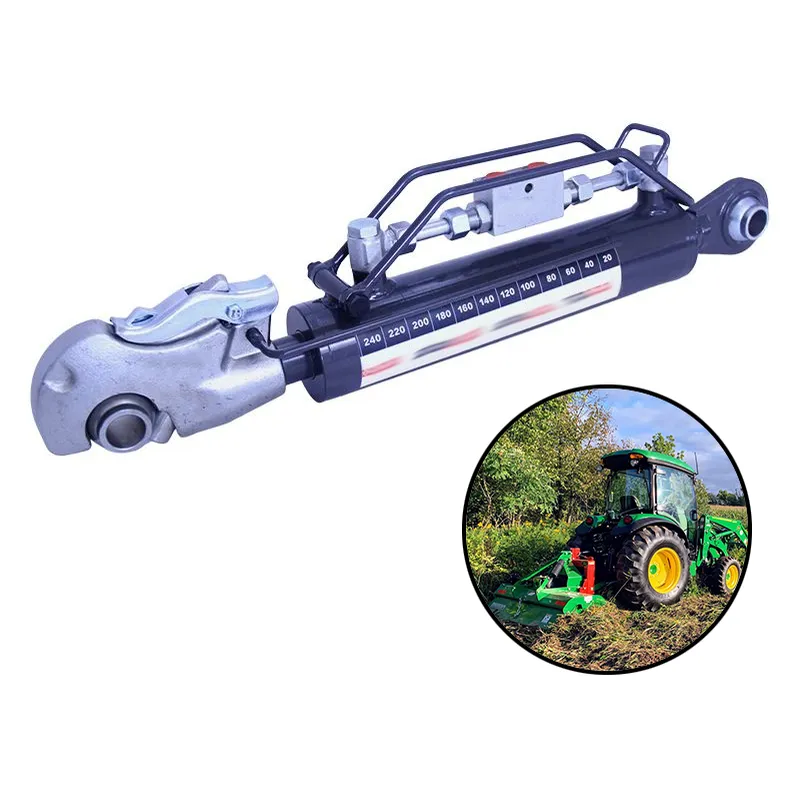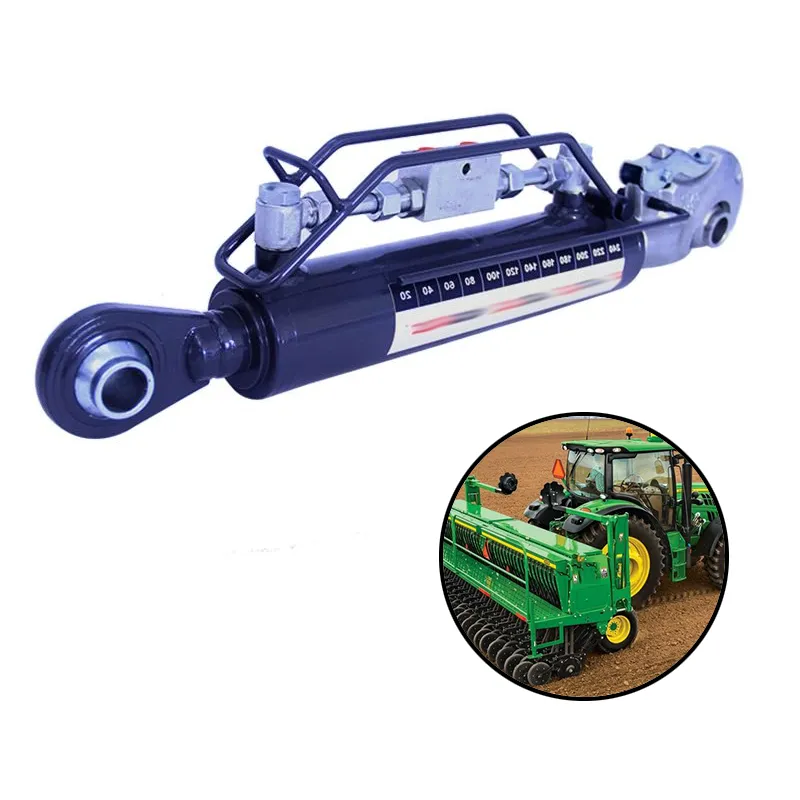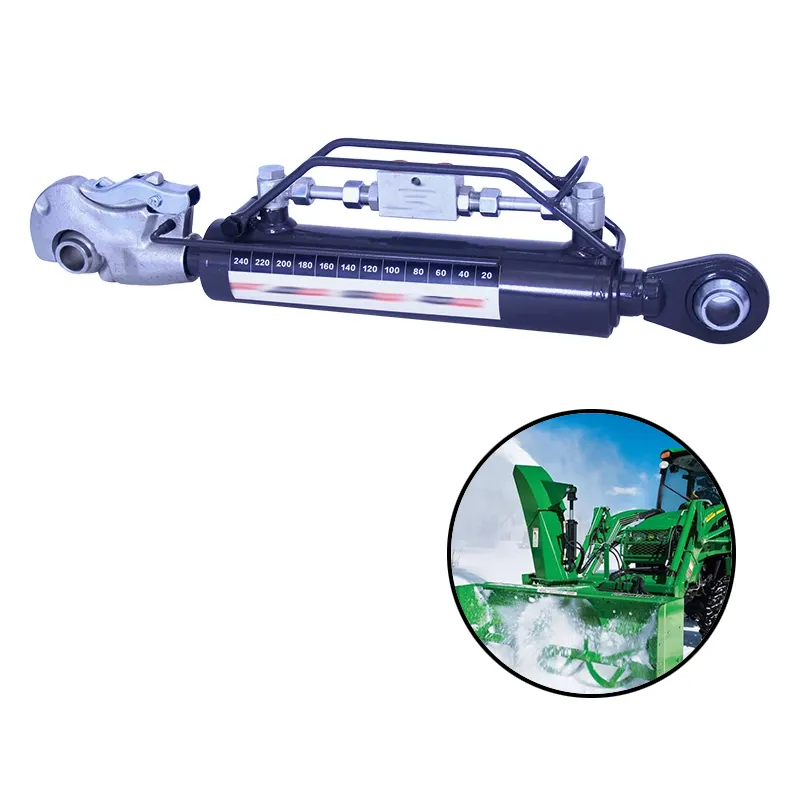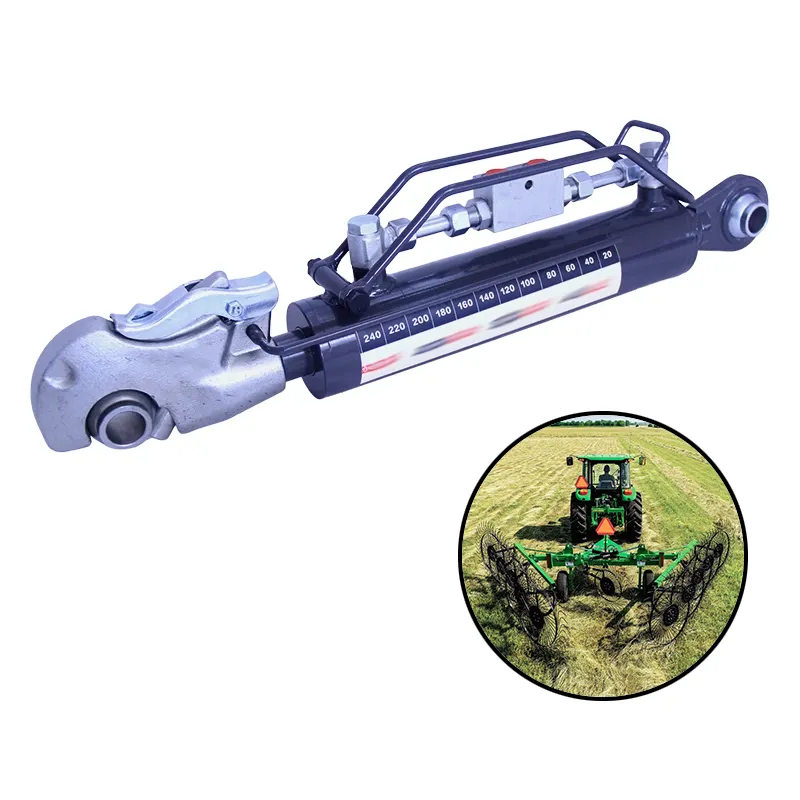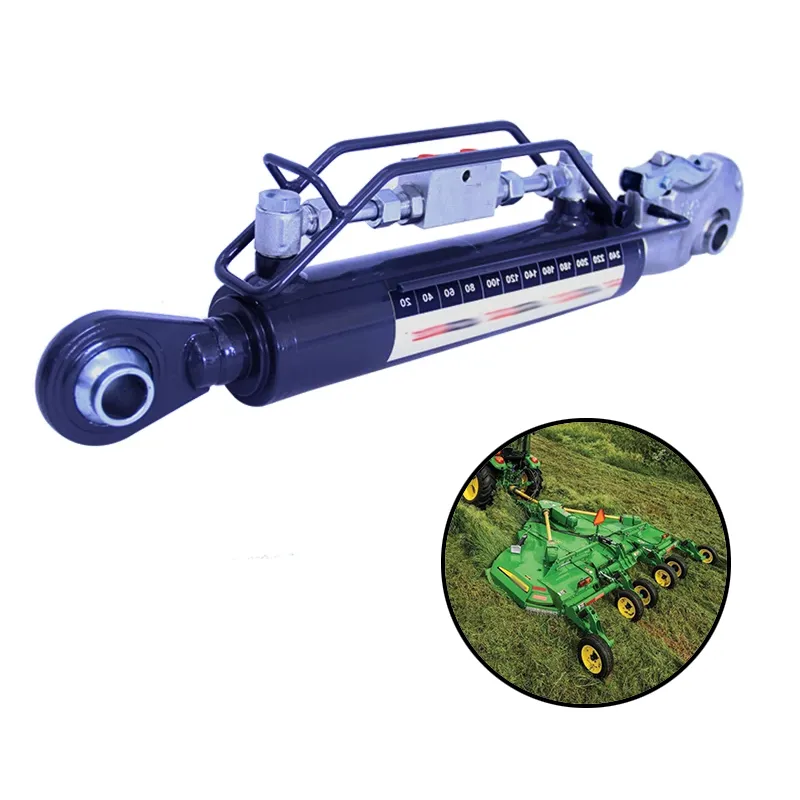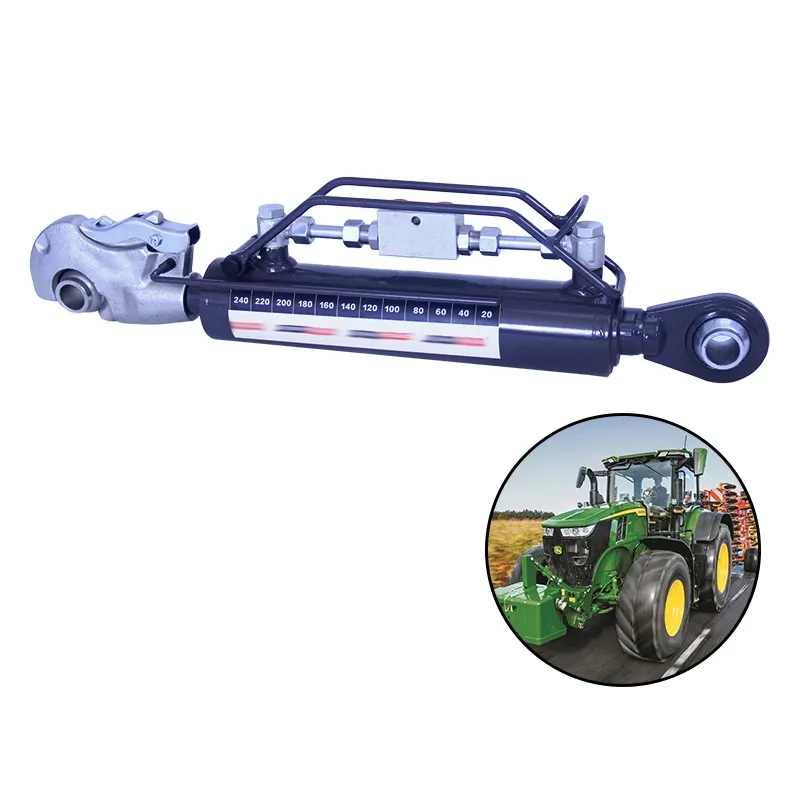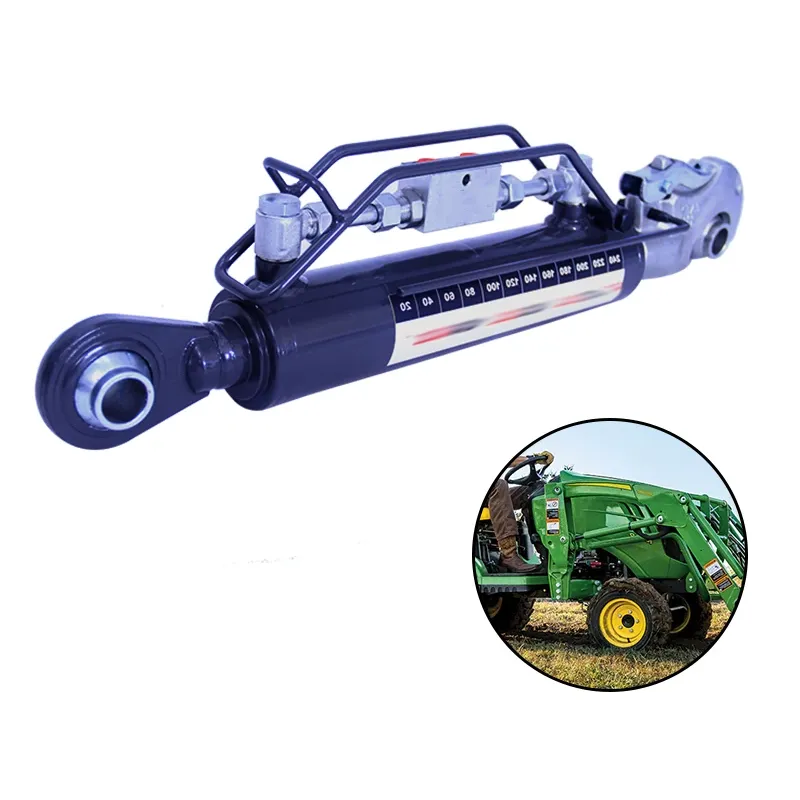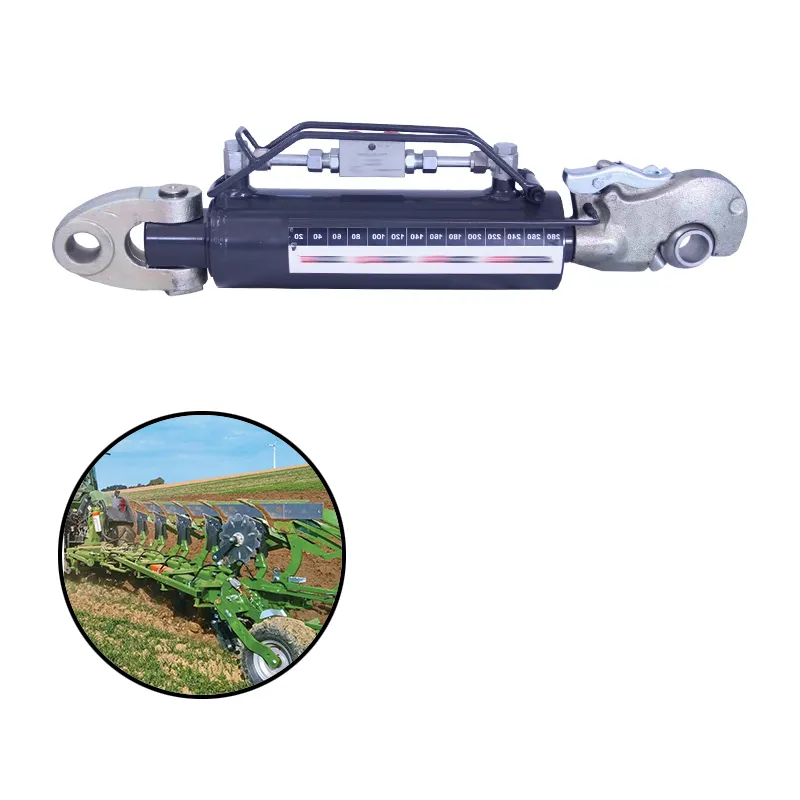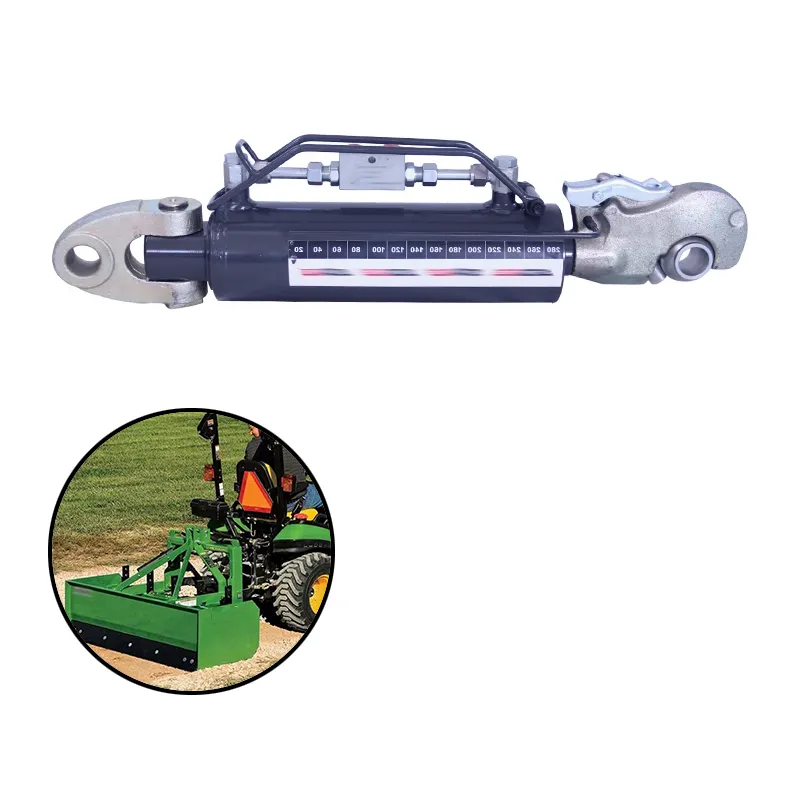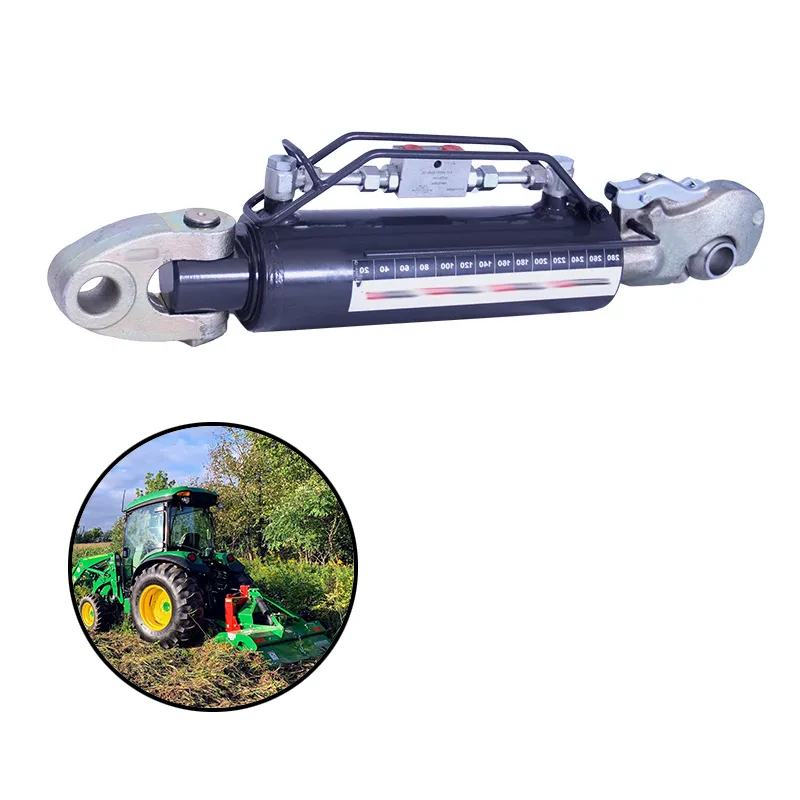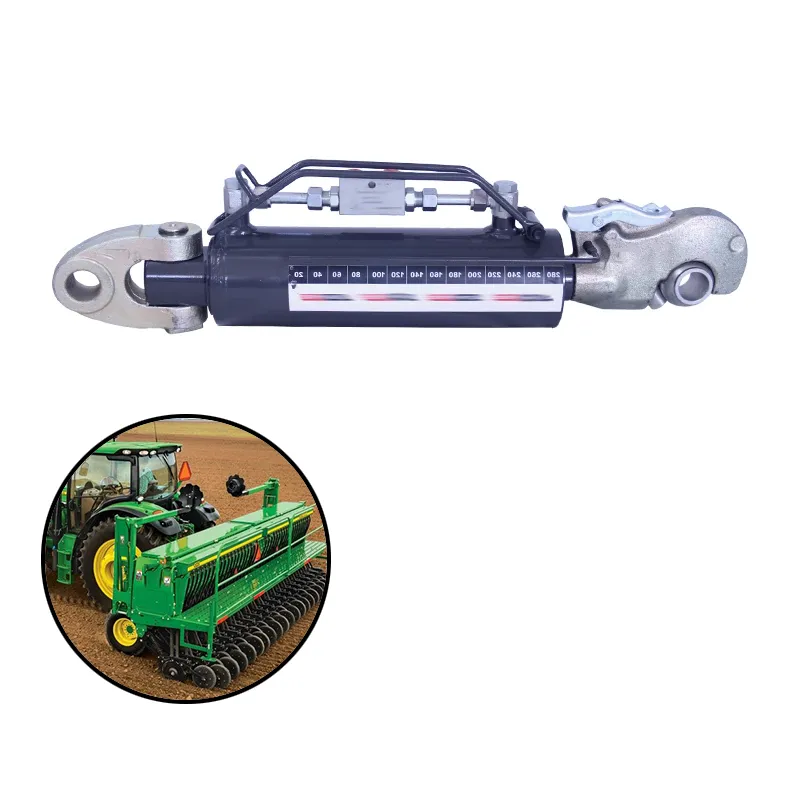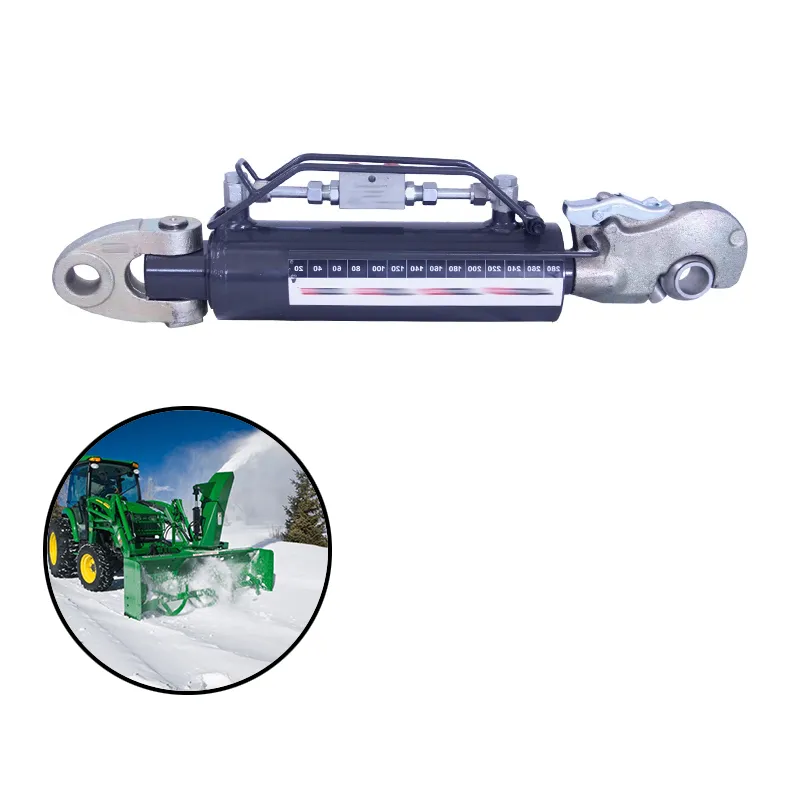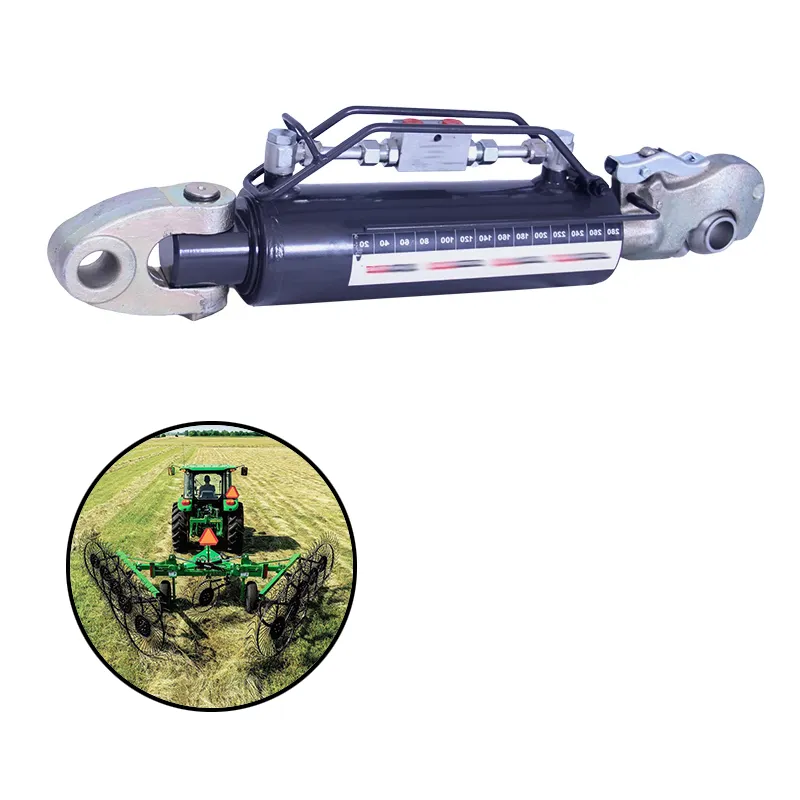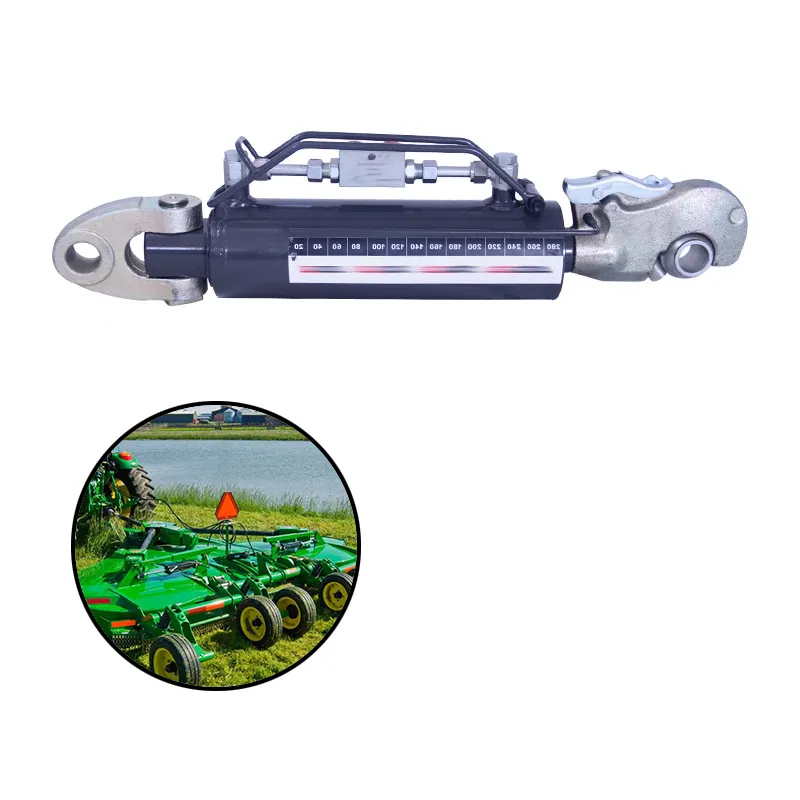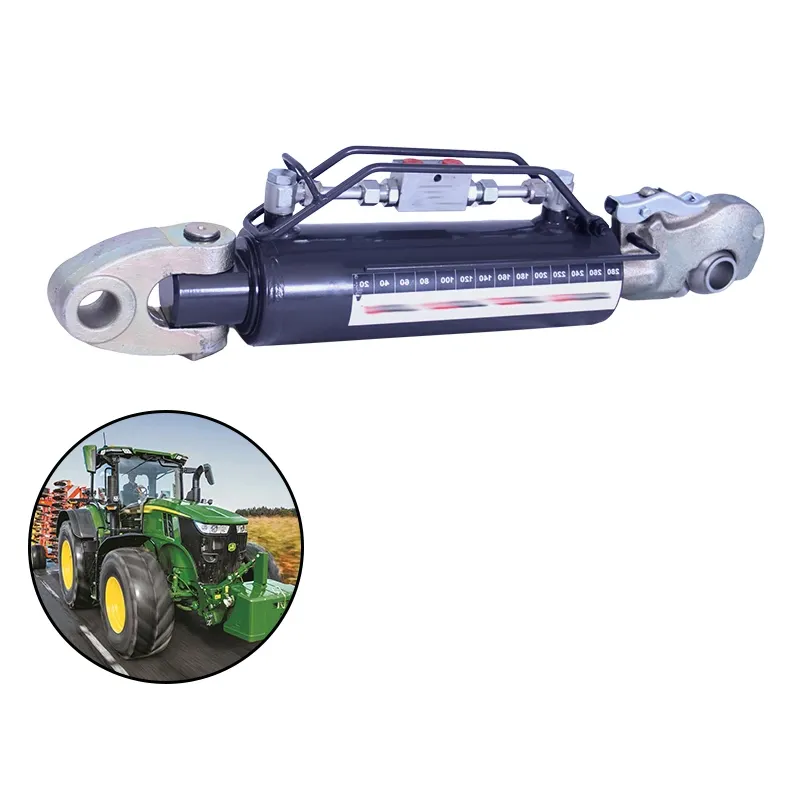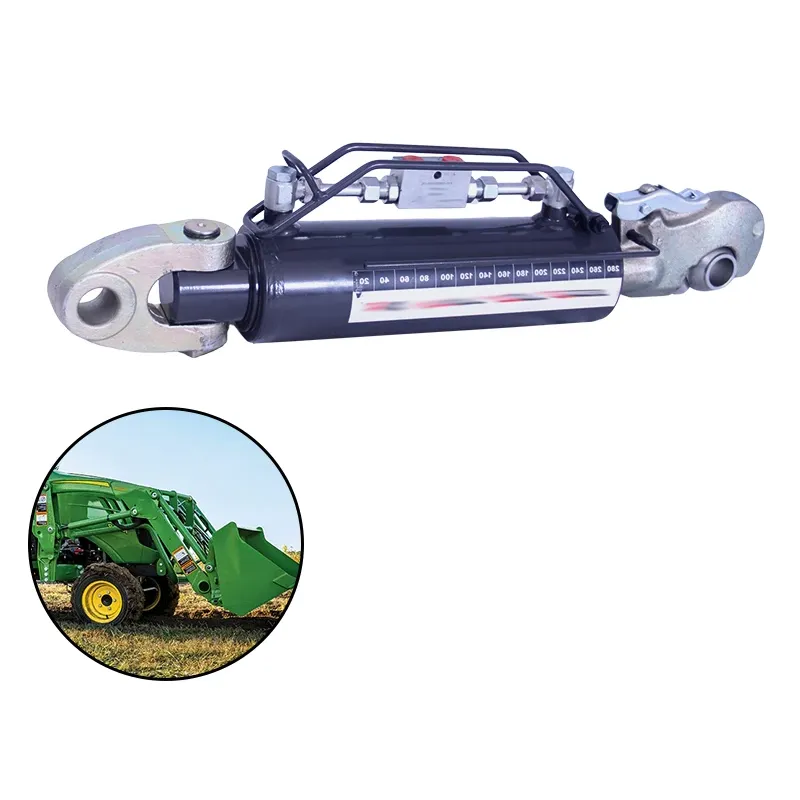Top Link Hydraulic Cylinders
For big machines, top link hydraulic cylinders are the best solution to choose. Top link cylinders are a smaller device, often used as an extension of your agricultural tools; they are always applied to stabilize your power transfer. When choosing your top link cylinder, look carefully at the action. In most cases, you will be picking from single or double-action cylinders. A category one top-link cylinder will be compatible with machines with horsepower between 25 and 55. These cylinders can operate at 3,000 PSI. When installed properly, the top link cylinder will make your three-point hitch operations much smoother. The hydraulic cylinder can control the forward-aft motion of the hitch.
Top Link Hydraulic Cylinder
Just consider a top link hydraulic cylinder. A top link cylinder is often used as an extension of your agricultural tools. You can install the hydraulic top link cylinder as an improved connection point for three-point equipment. When you upgrade to a hydraulic cylinder, you are getting the power of pressurization to provide more motion and force. In this way, the hydraulic top link cylinder will stabilize your power transfer applications.
When choosing your hydraulic cylinder top link, look carefully at the action. In most cases, you will be picking from single or double-action cylinders. A category one top link cylinder will be compatible with machines with horsepower between 25 and 55. These cylinders can operate at 3,000 PSI. When installed properly, the top link cylinder will make your three-point hitch operations much smoother. The hydraulic cylinder can control the forward-aft motion of the hitch. Many people choose a tractor top link hydraulic cylinder, and it can serve as a key connection piece with other farm equipment.
Hydraulic Top Link Cylinder Cat 1
Hydraulic Top Link Cylinder Cat 2
Hydraulic Top Link Cylinder Cat 3
What is the Top Link Hydraulic Cylinder?
The cylinder typically consists of a steel tube, a piston rod, seals, and hydraulic ports. It is powered by the tractor’s hydraulic system, controlled via levers or valves in the operator’s cabin. This adjustability improves efficiency, ensures consistent implement performance, and reduces operator strain.
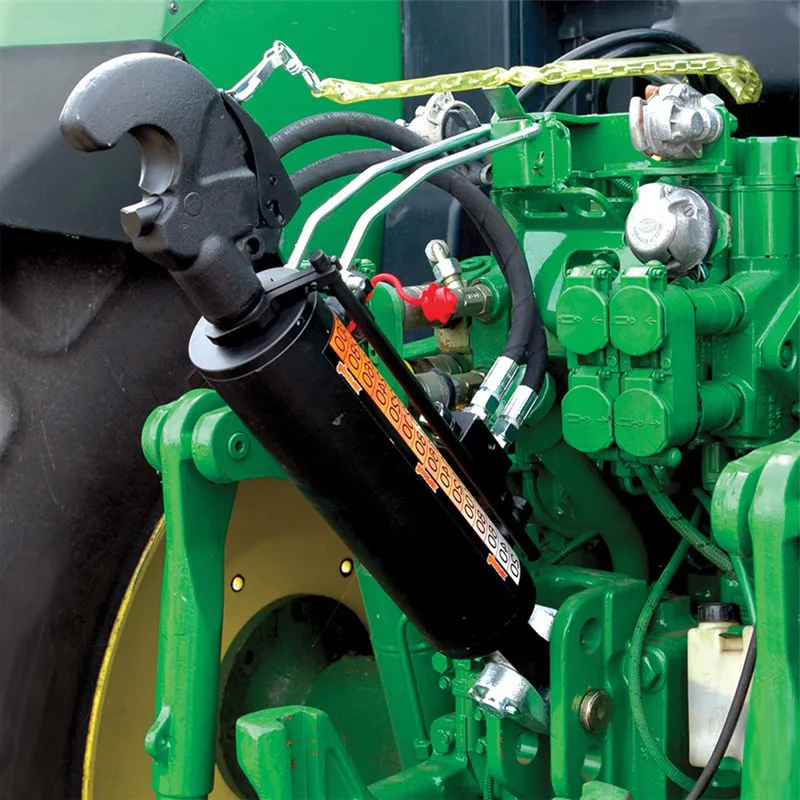
Features & Benefits
(1) Lightweight Body
The top link hydraulic cylinder is designed with a lightweight yet durable body, making it easy to handle and maneuver. This reduces strain on the tractor and enhances overall operational efficiency.
(2) Compact Structure
Its compact design allows the cylinder to fit seamlessly into three-point hitch systems without taking up unnecessary space, ensuring smooth integration with various tractor models and minimizing interference during use.
(3) Stable Performance
Engineered for consistent and reliable operation, the cylinder ensures stable hydraulic performance under varying loads and conditions. This reliability is crucial for maintaining consistent implement positioning and overall productivity.
(4) Easy Installation
The cylinder is designed for straightforward installation, requiring minimal tools and effort. Its user-friendly design ensures that operators can quickly attach or detach it, saving time and reducing setup complexity.
(5) CVersatility Across Implements
Compatible with a wide range of implements like plows, seeders, and mowers, the cylinder’s versatility makes it a valuable tool in agriculture and industry, adapting to diverse tasks with ease.
(6) Offers Customization
Top link hydraulic cylinders can be customized in terms of size, pressure range, and stroke length, allowing them to meet specific requirements for different tractors and implements, enhancing operational flexibility.
How Does a Hydraulic Cylinder Top Link Work?
The hydraulic cylinder consists of a cylindrical barrel, a piston, a rod, seals, and ports for hydraulic fluid. It operates using pressurized hydraulic fluid supplied by the tractor’s hydraulic system. When the operator activates the hydraulic control valve, fluid is directed into one side of the cylinder, pushing the piston and extending or retracting the rod. This movement adjusts the length of the top link, altering the angle of the attached implement relative to the ground. For example, extending the cylinder tilts the implement forward, while retracting it tilts it backward, optimizing performance for tasks like plowing or grading.
The cylinder is double-acting, meaning fluid can enter either side of the piston, allowing precise control in both directions. Seals prevent fluid leaks, ensuring consistent pressure. The system is powered by the tractor’s hydraulic pump, which maintains fluid pressure, typically between 2,000–3,000 PSI, depending on the tractor model. This setup provides smooth, responsive adjustments, enhancing operational efficiency and reducing manual labor. Regular maintenance, such as checking seals and fluid levels, ensures reliable performance.
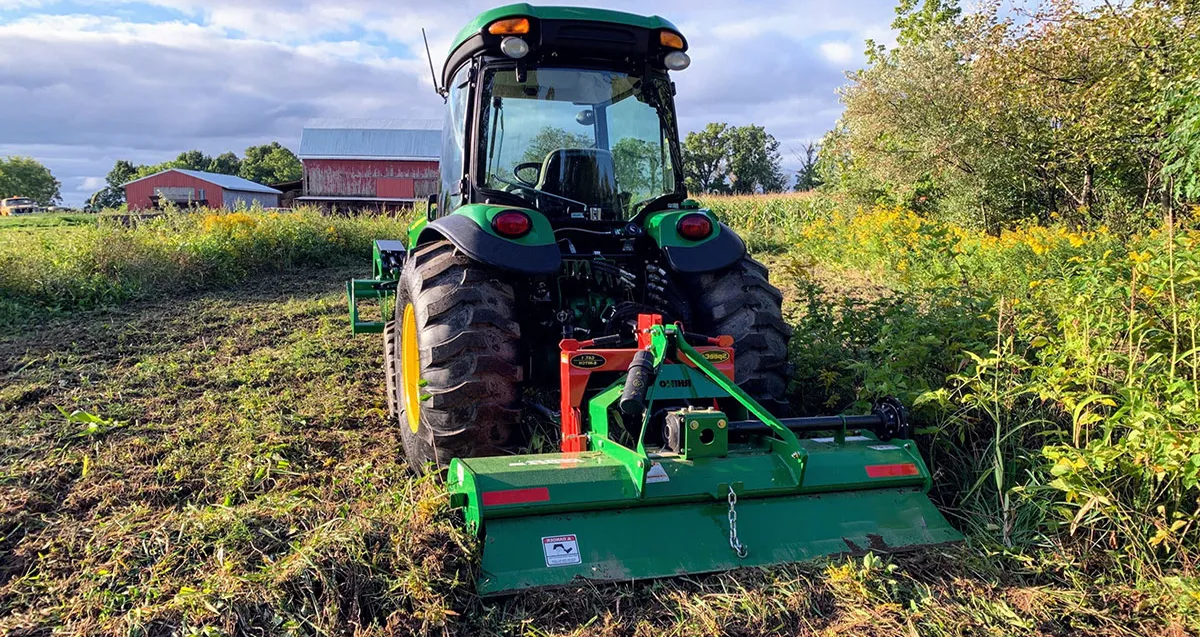
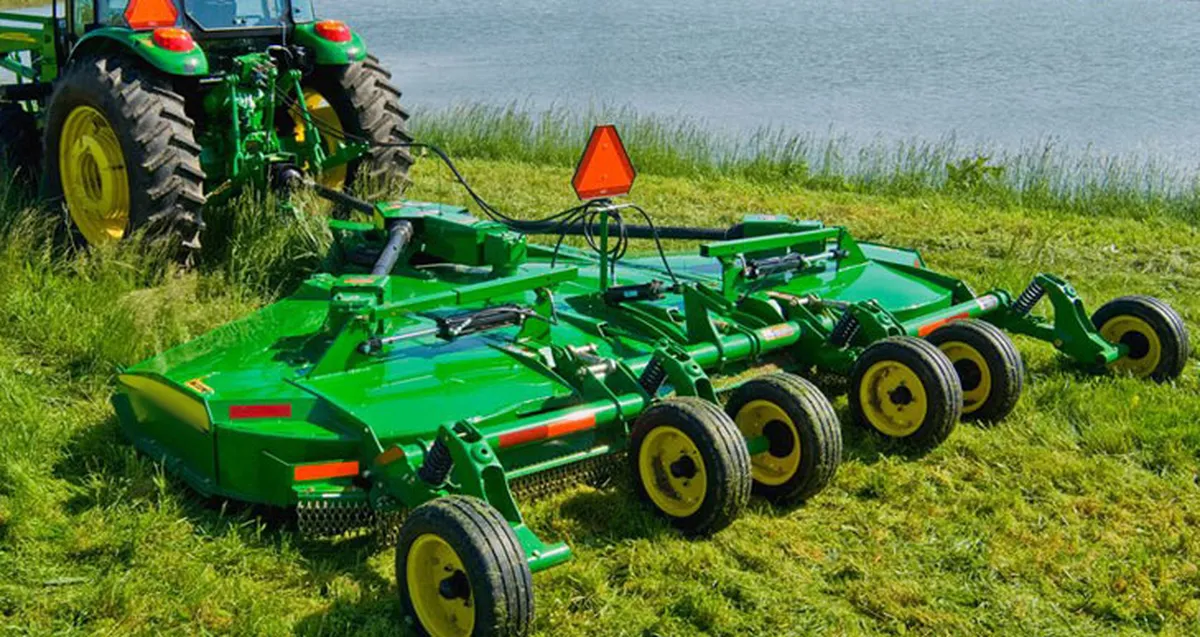
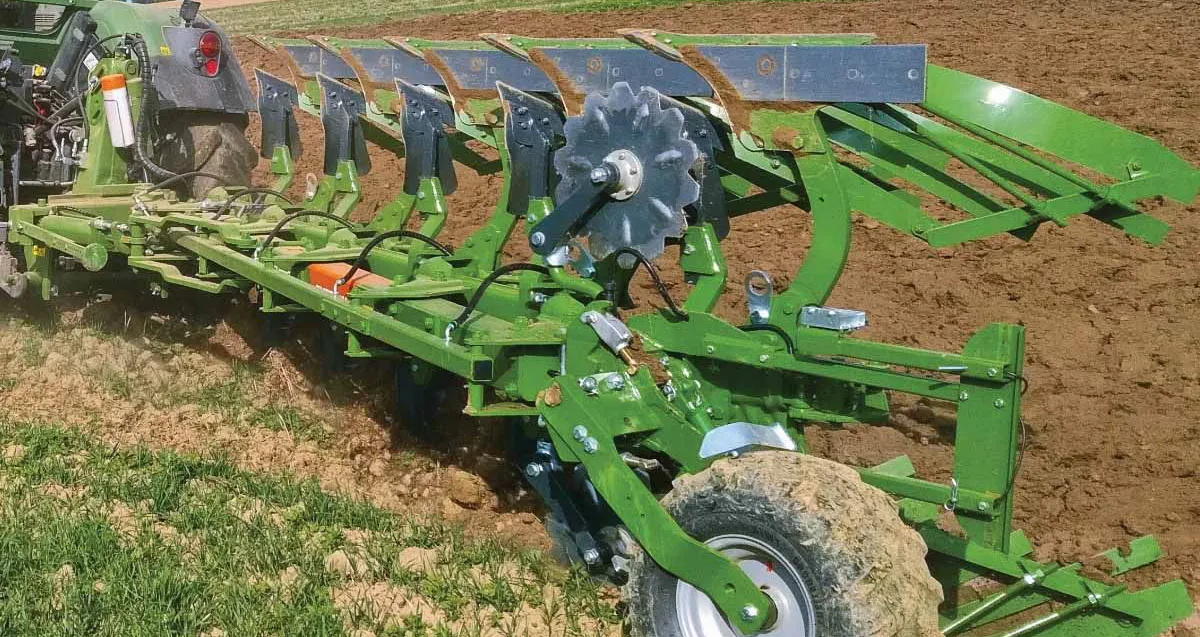
Custom Hydraulic Top Link Cylinders
Bore Size
The bore size determines the internal diameter of the cylinder, directly affecting its force output. Larger bore sizes provide higher force capacity, making them suitable for heavy-duty applications like plowing or grading.Rod Size
The rod size refers to the diameter of the piston rod. A thicker rod enhances durability and reduces the risk of bending or breaking under high pressure, ensuring reliable performance in demanding conditions.Stroke Size
The stroke size defines the maximum length the piston rod can extend or retract. Custom stroke sizes allow precise adjustments tailored to specific implement requirements, improving operational flexibility and efficiency.Pin Size
Pin size is critical for secure attachment to the tractor and implement. Customizing the pin size ensures a perfect fit, minimizing wear and tear and enhancing the stability of the cylinder during operation.
Port Size
Port size determines the flow rate of hydraulic fluid into and out of the cylinder. Custom port sizes allow compatibility with various hydraulic systems, ensuring smooth and efficient operation without fluid restrictions.Pressure Rating
The pressure rating indicates the cylinder’s ability to handle hydraulic pressure. Custom pressure ratings ensure the cylinder matches the tractor’s hydraulic system, preventing failures and optimizing performance under load.Material Customization
Custom cylinders can be built using materials like high-strength steel or lightweight alloys, balancing durability and weight. This customization ensures the cylinder withstands harsh conditions and prolonged use.Coating and Finish
Custom coatings, like corrosion-resistant finishes, can be applied to protect the cylinder from environmental damage. This feature enhances longevity, especially for agricultural applications exposed to moisture and chemicals.
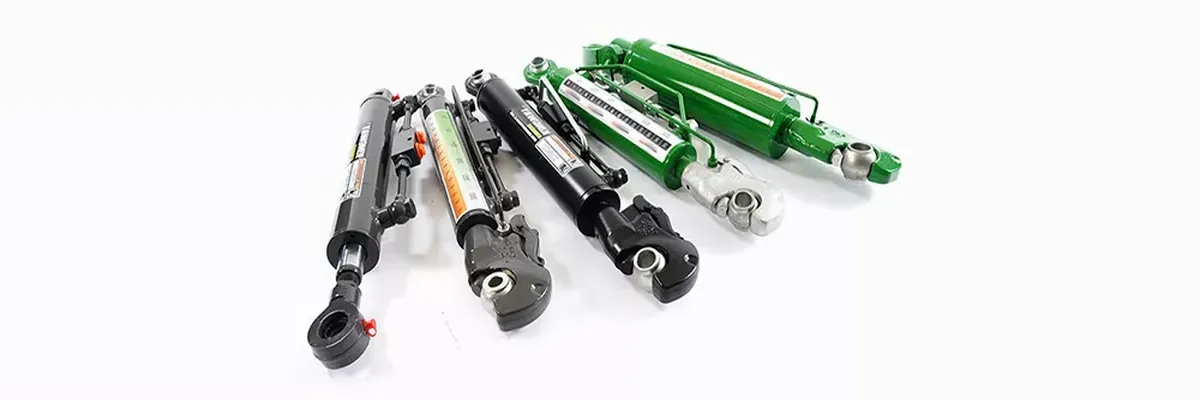
Selecting a Top Link Hydraulic Cylinder for Tractor
- Compatibility with Tractor Model: Ensure the hydraulic cylinder is compatible with your tractor’s three-point hitch system. Consider the tractor’s size (e.g., Category 1, 2, or 3), hydraulic pressure capacity, and connection points to guarantee seamless integration and optimal performance.
- Appropriate Bore and Stroke Sizes: Choose bore and stroke sizes based on the load requirements and the range of motion needed for your implements. Larger bore sizes provide more force, while longer strokes offer greater adjustment flexibility.
- Pressure Rating: Match the cylinder’s pressure rating with your tractor’s hydraulic system. A cylinder with an inadequate pressure rating may fail under load, while a higher rating ensures safe, efficient operation during heavy-duty tasks.
- Pin Compatibility: Verify that the pin size of the cylinder matches the tractor and implement attachment points. Proper pin sizing ensures a secure fit, reducing wear, tear, and the risk of disconnection during operation.
- Port Size and Type: Check the hydraulic port size and threading type to ensure compatibility with your tractor’s hydraulic hoses. Proper port sizing prevents fluid leaks, ensures smooth fluid flow, and maintains system efficiency.
- Durability and Material Quality: Select cylinders made from high-strength, corrosion-resistant materials like alloy steel. This ensures durability in harsh agricultural environments, including exposure to moisture, dirt, and chemicals, extending the cylinder’s lifespan.
- Adjustability and Custom Features: Look for cylinders with adjustable lengths or custom stroke sizes to accommodate a wide range of implements. Additional features, such as quick-release mechanisms or locking systems, enhance usability and versatility.
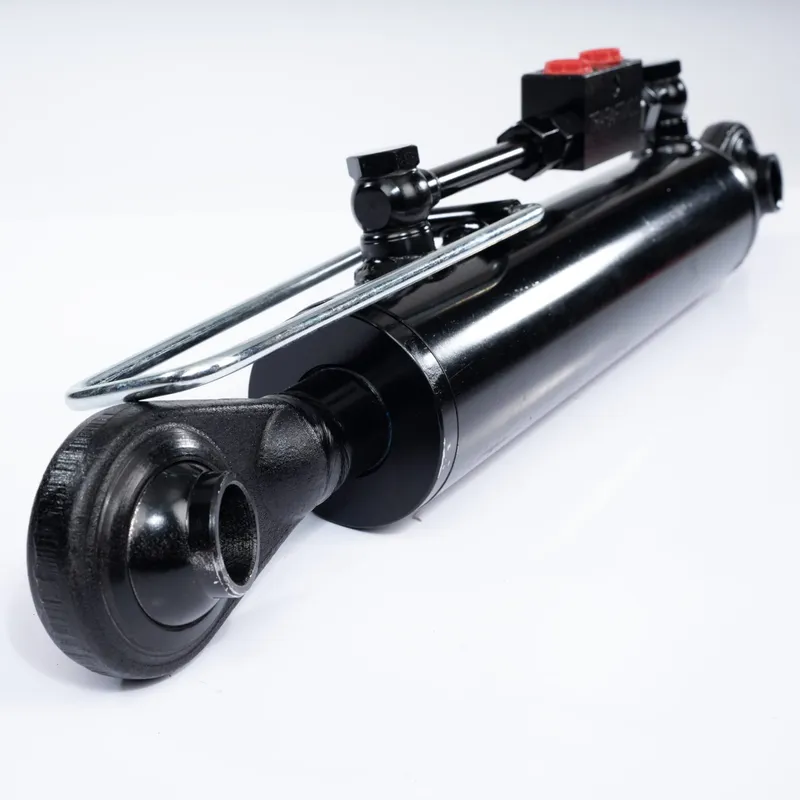

Hydraulic Cylinder Top Link FAQ
What Is a Tractor Top Link Hydraulic Cylinder Used For?
What Is the Difference Between Hydraulic Top Link Cylinder Cat 1 and Cat 2?
How to Choose the Right Top Link Hydraulic Cylinder Cat 1?
What Are the Benefits of a Top Link Hydraulic Cylinder Cat 2?
How Does a Top Link Cylinder Cat 1 Differ from Manual Top Links?
Can a Top Link Cylinder Cat 2 Handle Heavy-Duty Implements?
What Factors Should Be Considered When Buying a Tractor Top Link Cylinder?
When buying a tractor top link cylinder, ensure it matches your tractor’s hitch category, hydraulic pressure system, and implement weight. Check for durable materials, proper port size, and compatibility with your hydraulic hoses.

